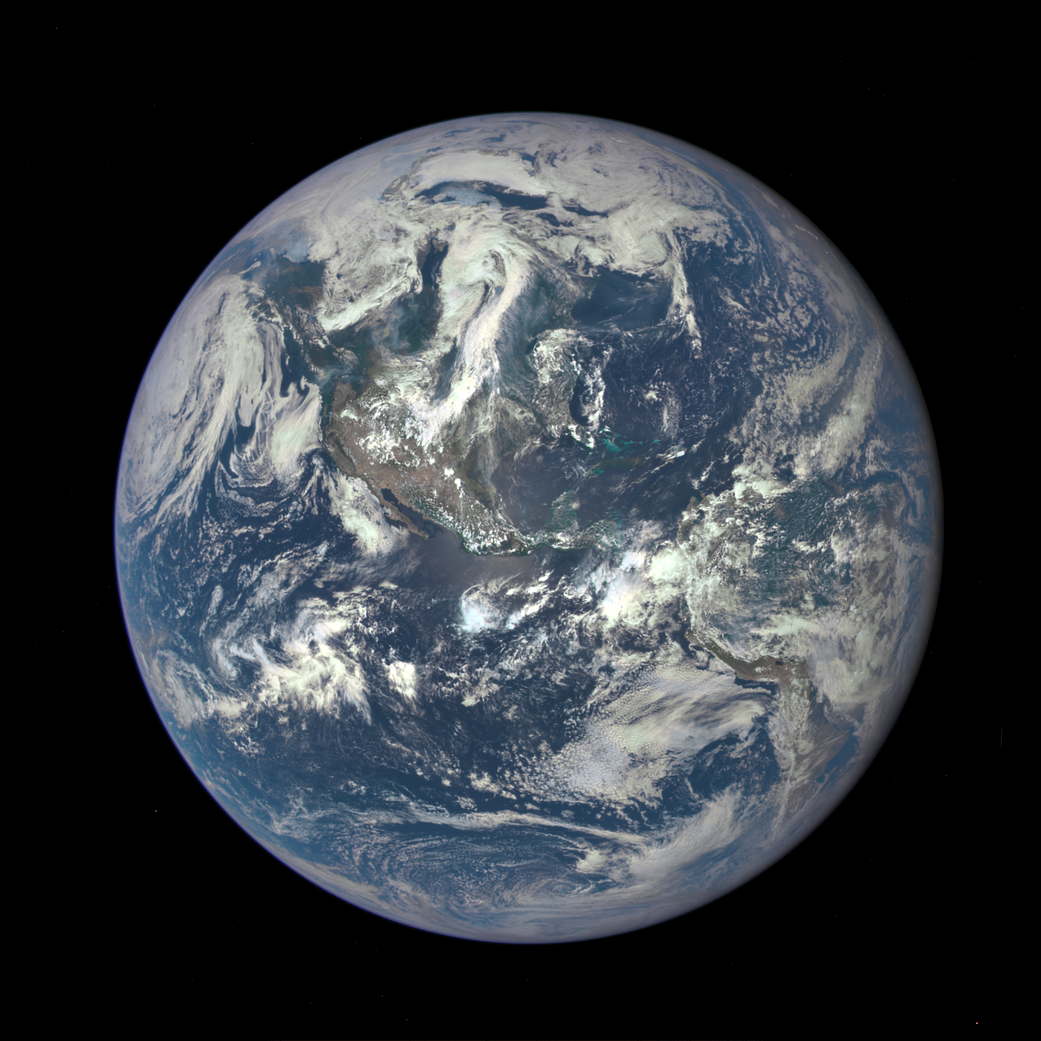Astronomy and the climate crisis: Scientists make some connections
Climate change affects astronomy, and vice versa.

As astronomers look out to the universe, they use planet Earth as an important reference point. This has created a growing relationship between astronomy and the evolving study of climate change, which an international team of scientists explores in three new studies.
Over the years, scientists have found an incredible variety of planets out in the cosmos, but none quite like Earth. But by studying far-off exoplanets, researchers can better understand our own planet (and vice versa.) So it's no surprise that astronomers are heavily involved in studying Earth's climate crisis. In these new studies, researchers examine how climate change is affecting astronomy and how the field is connected to the mounting global crisis.
"As astronomers, we are immeasurably lucky to work in a fascinating field. With our unique perspective on the universe, it is our responsibility to communicate, inside and outside our community, about the disastrous consequences of anthropogenic climate change on our planet and our society," Faustine Cantalloube, a researcher at the Max Planck Institute for Astronomy (MPIA) and lead author of one of the new studies, said in a statement.
Related: New climate study shows that we need to be patient
For the new research, an international team of astronomers banded together to examine how climate change and astronomy interact — specifically, to see how astronomical observations are affected by climate change and how astronomy as a field contributes to the growing climate crisis.
Taking a look in the mirror
In two of the three papers, the scientists assessed how astronomical research is impacting climate change.
To assess the carbon footprint of astronomical institutions, scientists at the MPIA added up their carbon dioxide emissions for a single year (2018) and found that they contributed about 18 tons of carbon dioxide per scientist just for research activities. This is almost twice as much as the average emissions per person in Germany.
Get the Space.com Newsletter
Breaking space news, the latest updates on rocket launches, skywatching events and more!
The most significant emissions they found were from air travel to conferences or observatories and from supercomputers that they use for simulations and to analyze data.
"We astronomers are responsible for our fossil fuel emissions. But reduction is rarely a question of personal choice," MPIA group leader Knud Jahnke, co-lead author of one study, said in the same statement.
"We need an analysis of where those emissions come from and then figure out whether we need to take action at the institute level, at the level of the whole astronomical community or even at the level of society as a whole in order to effect a major reduction," Jahnke said.
In these studies, the researchers made a number of recommendations about how astronomical institutions like the MPIA can reduce their emissions. For instance, they suggested that air travel be reduced and supercomputers be moved to locations like Iceland, where renewable-sourced electricity is available and where lower temperatures reduce the need for cooling.
On the note of reducing air travel, they also suggested that meetings that may have once been held in-person be moved online — something that researchers around the world have gotten used to with the onset of the coronavirus pandemic.
More: Shutdowns from coronavirus create blue skies in California
Climate vs observations
Though astronomy research has an impact on climate change with these emissions, our changing climate is conversely affecting the quality of astronomical observations, the researchers found in one of the three studies
In this third paper, researchers zeroed in on the Paranal Observatory of the European Southern Observatory in Chile, which is home to the Very Large Telescope (VLT). The observatory site's average temperature has increased by 2.7 degrees Fahrenheit (1.5 degrees Celsius) over the past four decades, which is higher than the world-average increase of 1.8 F (1 C) since the pre-industrial era.
These increasing temperatures can create significant issues with telescope cooling, the team found. The VLT, for instance, is cooled during the day to protect the dome's internal systems from degrading. But, when sunset temperatures rise higher than 60.8 F (16 C), the cooling system can't keep up and cool the device enough. This can significantly blur observations.
Additionally, instruments like those installed at the VLT are extremely sensitive to atmospheric properties like water vapor content. And, while Paranal is one of the driest places on our planet, some studies predict that, due to climate change, El Niño events will increase in amplitude. This is of concern for this particular facility because it is located below a strong jet stream connected to such extreme weather events.
The researchers hope that these studies will help astronomers consider how climate change might affect their work and, on the other side of the coin, how they can alter their research to contribute less to the climate crisis.
These three studies were published Sept. 10 in the journal Nature Astronomy.
Study 1 here.
Study 2 here.
Study 3 here.
Email Chelsea Gohd at cgohd@space.com or follow her on Twitter @chelsea_gohd. Follow us on Twitter @Spacedotcom and on Facebook.
Join our Space Forums to keep talking space on the latest missions, night sky and more! And if you have a news tip, correction or comment, let us know at: community@space.com.

Chelsea “Foxanne” Gohd joined Space.com in 2018 and is now a Senior Writer, writing about everything from climate change to planetary science and human spaceflight in both articles and on-camera in videos. With a degree in Public Health and biological sciences, Chelsea has written and worked for institutions including the American Museum of Natural History, Scientific American, Discover Magazine Blog, Astronomy Magazine and Live Science. When not writing, editing or filming something space-y, Chelsea "Foxanne" Gohd is writing music and performing as Foxanne, even launching a song to space in 2021 with Inspiration4. You can follow her on Twitter @chelsea_gohd and @foxannemusic.








